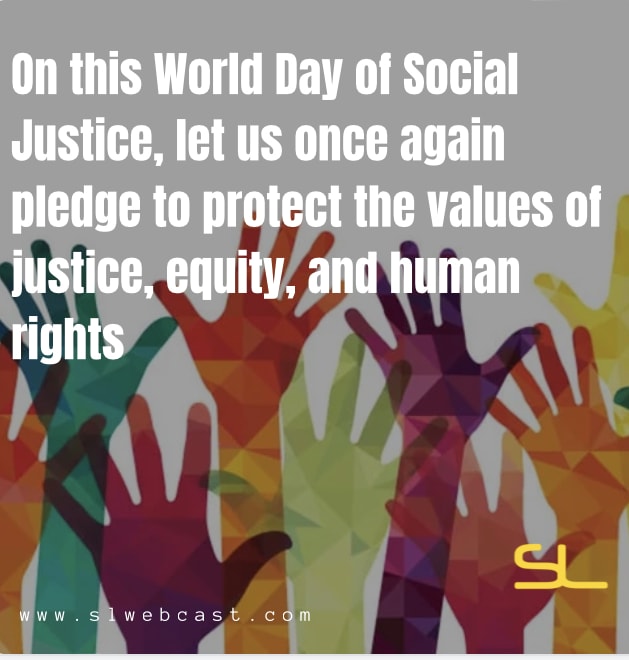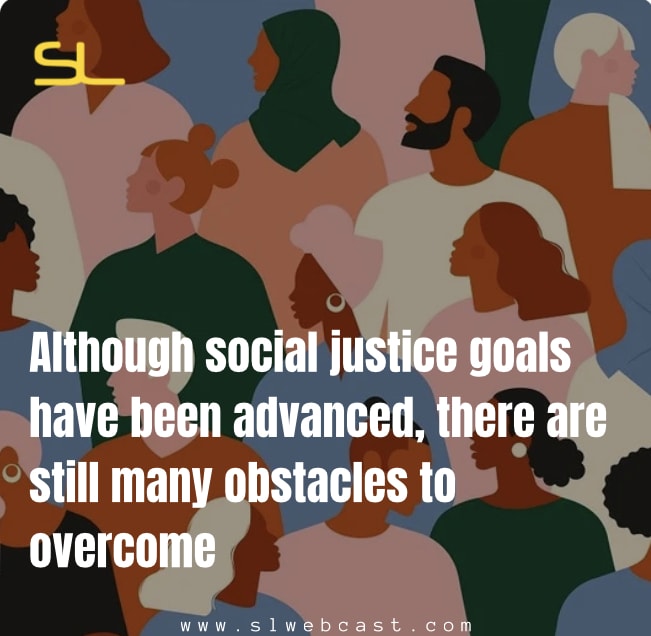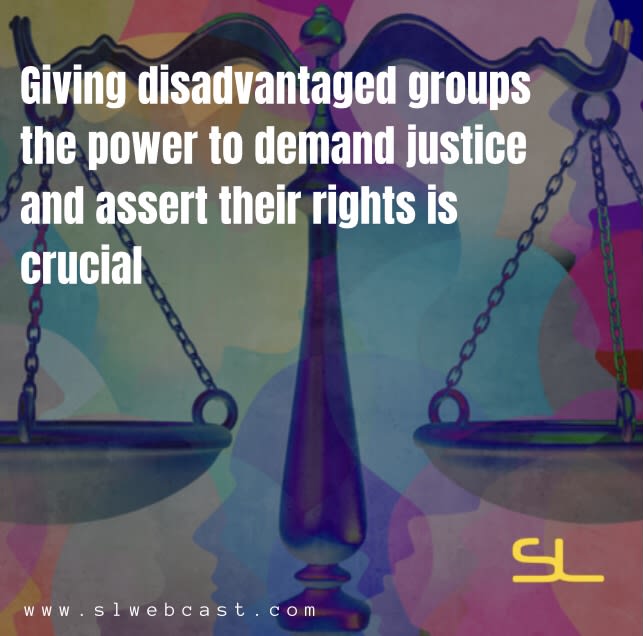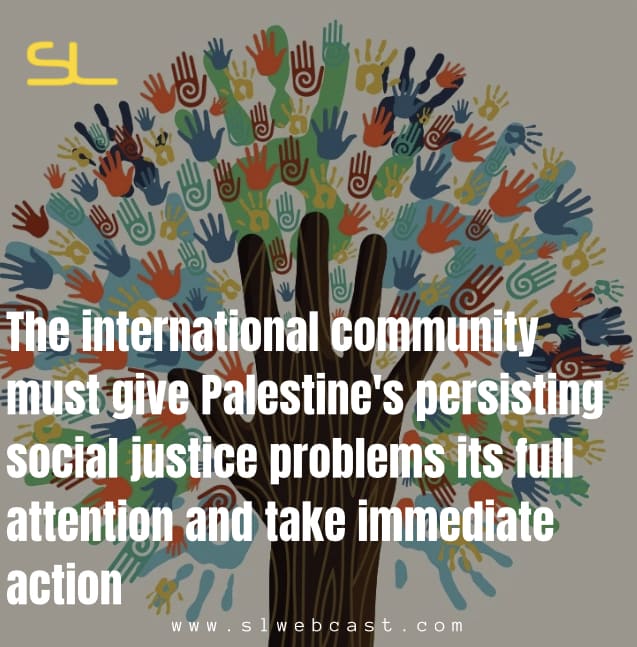The pursuit of social justice has a long history, having been championed by philosophers, religious figures, and other intellectuals who believed in justice and equality in society. Movements like the eradication of slavery, the defence of civil rights, and the advancement of gender equality have influenced social justice discourse and sparked societal change over the ages. The United Nations, which was founded in 1945, offered a worldwide forum for resolving violations of human rights and advancing social progress. The UN’s dedication to promoting justice and inclusion globally was reinforced in 2007 when February 20th was declared World Day of Social Justice.
The fundamental idea of the World Day of Social Justice is to encourage inclusivity, equity, and fairness in all spheres of society. It aims to address the underlying causes of prejudice and inequality, including racial, gendered, ethnic, and socioeconomic status characteristics as well as disabilities. Raising awareness of social injustices, encouraging communication and understanding, pushing for legislative changes, and organizing group efforts to remove structural obstacles are some of the day’s main goals.

Promoting inclusion, equity, and fairness in all areas of society is the core concept behind the World Day of Social Justice. It attempts to address the underlying causes of discrimination and inequality, such as traits related to race, gender, ethnicity, and socioeconomic status in addition to disability. Among the day’s principal objectives are bringing attention to social injustices, promoting understanding and communication, advocating for changes in the law, and coordinating collective actions to eliminate structural barriers.
Giving disadvantaged groups the power to demand justice and assert their rights is the main thing we have to talk about. The World Day of Social Justice gives disadvantaged groups the power to do just that. The day mobilizes support for their problems and brings attention to the difficulties they encounter by elevating their voices and experiences. It gives underrepresented groups a forum to speak up for legislative changes, get access to resources, and take part in choices that have an impact on their daily life.
Resolving social injustice calls for worldwide collaboration and solidarity in a society that is growing more interconnected daily. The World Day of Social Justice encourages cooperation between governments, corporations, individuals, and civil society organizations to address global issues like conflict, poverty, inequality, and climate change. Together, we can make the most of our resources and knowledge to build a more equitable and sustainable society.
Although social justice goals have been advanced, there are still many obstacles to overcome. Progress towards a fairer society is nonetheless hampered by systematic impediments, persistent discrimination, and structural inequality. The challenges posed by economic globalization, technical developments, and geopolitical tensions exacerbate social inequalities and inequality.

For example, Palestine’s social justice movement has its roots in political, humanitarian, and historical issues. Palestinians have endured structural injustices for many years, such as forced relocation, occupation, and limitations on their ability to exercise fundamental human rights. There are persistent problems with social justice regarding the issues in Palestine and the urgent need for international attention and action to resolve them.
Displacement, war, and colonization have characterized Palestine’s past. Hundreds of thousands of Palestinians were forced to flee their homes following the creation of the state of Israel in 1948. This event is known as the Nakba, or “catastrophe.” The Palestinian-Israeli conflict has been further entrenched by subsequent wars and territorial disputes, which have continued cycles of violence and injustice.
There have been several human rights breaches as a result of Israel’s continuous occupation of Palestinian territory, particularly the West Bank and Gaza Strip. Palestinians experience systematic discrimination in access to resources like housing, land, and water, as well as arbitrary arrests and incarceration without charge or trial. The establishment of unlawful Israeli settlements on occupied territory worsens the situation of displacement and obstructs the possibility of a Palestinian state.
One of the world’s most populated regions, the Gaza Strip, has been under an Israeli embargo since 2007. The flow of people and goods is severely restricted by this blockage, which exacerbates unemployment, food insecurity, and poverty. Repeated Israeli attacks have destroyed Gaza’s infrastructure, leaving its people susceptible to terrible living conditions and restricted access to basic services like healthcare and education

The core human rights of Palestinians, such as the freedom of movement, the right to self-determination, and the right to quality healthcare and education, are nevertheless routinely violated. International human rights organizations have condemned the use of disproportionate force by Israeli security forces against Palestinian protesters, including children, resulting in multiple casualties and injuries.
Despite calls for boycotts, divestments, and sanctions (BDS) against Israel and broad international sympathy for the Palestinian cause, real progress in addressing the underlying causes of injustice is still elusive. Geopolitical interests and power disparities have hindered diplomatic efforts to reach a fair and durable settlement to the conflict, based on international law and pertinent UN resolutions.
The international community must give Palestine’s persisting social justice problems its full attention and take immediate action. Realizing the rights and dignity of the Palestinian people requires addressing the underlying causes of injustice, such as the Israeli occupation, settlement growth, and blockade of Gaza. Global individuals, governments, and institutions have a responsibility to support Palestine and strive for a future where all residents of the region live in equality, justice, and peace.
But amidst these difficulties, there are chances for revolutionary change. The World Day of Social Justice acts as a spark to encourage advocacy and group action to address structural inequities and advance constructive social change. We can create a more inclusive and equitable society for coming generations by using the power of social media, international cooperation, and grassroots movements.

Recent years have seen a surge in grassroots activity, social media campaigns, and public awareness, all of which have contributed to the worldwide discourse about social justice. Protests and calls for reform have been frequent in response to issues including environmental degradation, gender inequality, institutional racism, and police brutality taking centre stage. For instance, the Black Lives Matter campaign has brought attention to the widespread.
The path to social justice has been a long and difficult one, filled with both major successes and disappointments. Brave people and groups have battled against injustice, prejudice, and oppression throughout history, opening the door for advancement and constructive change. Millions of people all over the world have been motivated to fight for their rights and seek justice by movements like the American Civil Rights movement and the South African anti-apartheid campaign.
In summary, on this World Day of Social Justice, let us once again pledge to protect the values of justice, equity, and human rights. Let’s take a position in support of underprivileged groups and collaborate to address the underlying causes of social injustice. We can create a world where everyone may live with equality, respect, and dignity by valuing diversity, encouraging inclusivity, and pushing for constructive change. Let’s work together to create a day where social justice is a reality for everyone, not just a pipe dream.


